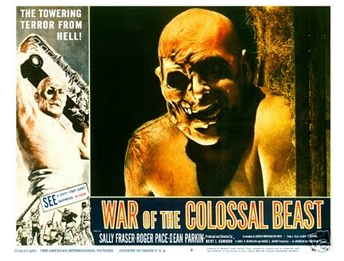Wall Street Reform Could Cost Goldman Sachs BILLIONS
Courtesy of Ryan Grim and Shahien Nasiripour at The Huffington Post
 The proposed financial reforms pending before Congress could cost Goldman Sachs nearly a quarter of its annual profits, Citigroup analysts estimate in a new report.
The proposed financial reforms pending before Congress could cost Goldman Sachs nearly a quarter of its annual profits, Citigroup analysts estimate in a new report.
Goldman, the most profitable securities firm on Wall Street, could lose up to $5.06 in earnings on a per-share basis if Congress passes a bill that forbids banks from trading for their own profit, owning or sponsoring hedge funds and private equity funds, and compelling them to move most of their derivatives dealing into regulated markets, according to the research note.
Combined with a potential fee to recoup taxpayer losses on TARP and higher deposit insurance assessments on its bank, Goldman could lose up to 23 percent of its profits, giving it the distinction of being the firm most impacted by the financial reform legislation.
Morgan Stanley is a close second as the team of Citi analysts, led by Keith Horowitz, estimate that it could lose up to 20 percent of its profits. Up to 18 percent of JPMorgan Chase’s profits are at risk, while Bank of America, the nation’s largest bank by assets, could see up to 16 percent of its profits evaporate.
The so-called "Volcker Rules," which would ban banks from putting their own capital at risk in hedge funds, private equity firms and through proprietary trades, and limit the growth of the largest ones, could shave four percent off the banks’ bottom lines, the Citi analysts estimate. Tighter restrictions on prop trading, which come in the form of a provision pushed by Democratic Senators Carl Levin of Michigan and Jeff Merkley of Oregon, could cost the big banks five percent of their profits.
Combined with the various other aspects of the pending legislation — like compelling banks to hold better-quality capital, making the biggest ones pay more for deposit insurance and robust regulation of heretofore unregulated derivatives — and the nation’s biggest banks could collectively lose up to 11 percent of their annual profits, the Citi analysts estimate in their Wednesday report. Goldman, Morgan, JPMorgan and Bank of America would be the most impacted.
"[O]ne of the biggest areas of risk for the group is tougher trading rules via [a] narrow definition of what constitutes banned proprietary activity," the authors noted. They were also careful to note that while their estimates required many assumptions, they viewed their final figures as a "reasonable and conservative base to gauge where earnings might shake out."
Goldman, for example, could lose up to $1.5 billion in annual profits due to the tighter rules governing trades when their own capital — rather than that of their clients — is at risk. Goldman’s potential loss would be bigger than the combined impact on BofA, JPMorgan and Morgan Stanley.
The combined impact of the Volcker Rules and the Merkley-Levin provision could cost Goldman up to $5.6 billion a year in lost profits.
The report also notes that derivatives could become a more expensive line of business for megabanks if the final legislation adopts a measure pushed by Sen. Blanche Lincoln, an Arkansas Democrat. Lincoln wants to compel banks to spin off their units that deal in swaps, a kind of derivative, into a separately-capitalized affiliate within the larger bank holding company. The amount of capital the banks would have to raise would be "substantial," the Citi analysts note.
"Funding costs will likely rise," they wrote, as "[c]ommercial banks enjoy the benefit of funding derivatives with low cost and stable deposits. A separate subsidiary would require funding with a mix of short- [and] long-term debt, and equity."
This may also hurt their competitiveness, as U.S. firms like Goldman and JPMorgan would have to compete with European megabanks that fund their derivatives bets with low-cost deposits, the authors note.
Elsewhere in the report, the authors note that a proposed measure to regulate the interchange fees large banks collect from merchants on customers’ debit card usage could cost Bank of America up to $432 million in annual lost revenue. Wells Fargo could lose up to $350 million, while JPMorgan Chase could lose up to $298 million.
A Senate measure that would force large banks to pay more for deposit insurance relative to smaller banks could cost BofA up to $1.2 billion annually, while JPMorgan Chase could have to shell out $1.7 billion and Wells Fargo about $634 million.
Another Senate provision that would force banks to hold better-quality capital, introduced by Maine Republican Susan Collins with the support of Federal Deposit Insurance Corporation Chairman Sheila Bair, would have a "limited" impact on the nation’s biggest banks, the authors note. However, big regional banks like Fifth Third Bancorp, M&T Bank Corp., and BB&T Corp. could be hit particularly hard as between a fifth and a quarter of their current capital is in the form of a debt-like security that Collins wants to limit. Those banks may have to raise billions in fresh capital to maintain current levels.
Ryan Grim is the Huffington Post’s senior congressional correspondent and has written for Slate, Rolling Stone, Harper’s, and the Washington Post. He also has a new book out, "This Is Your Country on Drugs: The Secret History of Getting High in America

Shahien Nasiripour is a business reporter for the Huffington Post. Previously, he was a reporter at the Center for Investigative Reporting, the nation’s oldest nonprofit investigative news organization. He’s worked as a researcher for ESPN and as a reporter for the South Florida Sun-Sentinel and The Providence Journal.
Photo courtesy of Jr. Deputy Accountant


